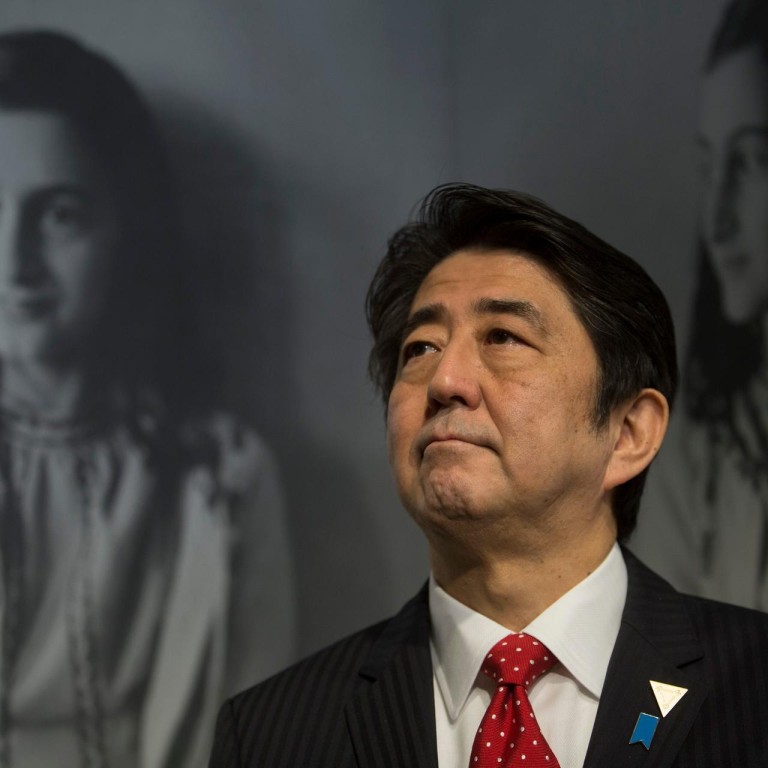
Abe visits Anne Frank House before US, Korea meeting
Japan's Prime Minister Shinzo Abe has paid a visit to the Anne Frank House museum in Amsterdam, a diplomatic move ahead of a meeting with the leaders of the US and South Korea to discuss North Korea.
Japan's Prime Minister Shinzo Abe has paid a visit to the Anne Frank House museum in Amsterdam, a diplomatic move ahead of a meeting with the leaders of the US and South Korea to discuss North Korea.
Abe also expressed regrets yesterday that 300 copies of Anne Frank's diary were vandalised recently in Tokyo libraries.
"We would like to face historical facts in a humble manner and we would like also to pass on the lessons and facts of history to the next generation," Abe said.
"By doing so I wish to encourage peace in the entire international community."

In the run-up to the Nuclear Security Summit in The Hague, Abe has sought to undo fallout from his December visit to Yasukuni Shrine, which honours all Japanese military casualties - including war criminals. The move angered China and South Korea and revived concerns about Abe's nationalist and revisionist tendencies.
Earlier this month Abe said he would not undo Japan's past apologies for its actions in the second world war.
Anne Frank, a German Jew born in Frankfurt in 1929, documented her family's experiences hiding in concealed rooms during the German occupation of the Netherlands where they settled in 1933. They were caught and sent to Nazi concentration camps where Anne and her sister died of typhus in 1945.
Anne's was added to the UN Education, Scientific and Cultural Organisation's Memory of the World Register in 2009.
Abe's visit to the museum was not directly linked to the recent vandalism in Japan, "but the prime minister is likely to express our feeling against it if he has a chance", an official in Japan had said last week.
Last week, Tokyo police arrested the 36-year-old man without supplying a motive for the crime or identifying the suspect, whom they said has admitted to the vandalism. Japanese authorities often refrain from naming a suspect when there are questions over the individual's mental competence.
Abe is the most prominent world leader to visit the Anne Frank house since Israeli President Shimon Peres, former German President Christian Wulff and former UN Secretary-General Kofi Annan.
"Abe seems more sensitive to Western criticisms of his revisionism than those coming from China or Korea, and in particular of the Jewish American community as represented by the Simon Wiesenthal Centre," Sophia University professor Koichi Nakano said.
